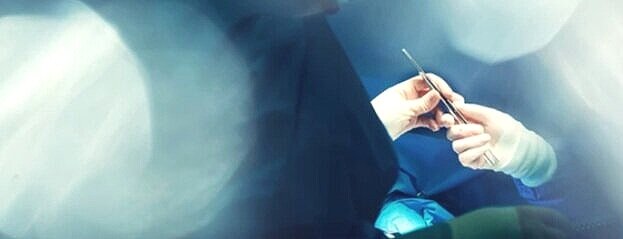
Bowel Surgery
(including Colorectal Cancer Surgery)
Bowel surgery is also known as bowel resection.
It is the removal of a segment of bowel which is diseased.
The specific name of the operation depends on which segment of bowel is removed.
How is bowel resection surgery performed?
Bowel resection is performed by releasing the bowel from its connections within the abdomen. The segment of bowel is then divided (or cut off). The remaining bowel can usually be re-joined, using either specialized medical staples or stitches.
In some instances, it may be deemed unsafe to re-join the bowel or the re-joined bowel may have an increased risk of complications. In these cases, a stoma may be required.
A stoma is an opening on the abdomen where the bowel is brought out onto the skin. Bowel contents are then removed from the body into a collection bag on the skin. In many instances, a stoma is temporary and can be reversed at a later date.
Can bowel resection be performed with keyhole surgery?
Bowel resection can be performed using keyhole (laparoscopic) surgery or traditional open surgery. Which modality is appropriate depends on factors, such as which segment of bowel is to be removed and your past medical history.
In open surgery, an incision is made on the abdomen. The bowel resection is then performed as described above.
In keyhole (laparoscopic) surgery, the size of the incisions is smaller. The surgery is performed with a thin telescopic camera (known as a laparoscope) inserted through a small incision. The abdominal cavity is inflated with harmless gas (carbon dioxide), which allows the surgeon to see what is required. Additional small incisions are made at other sites on the abdomen to allow keyhole operative instruments to be inserted into the operative space. The bowel resection is then performed with these keyhole instruments as described above.
The benefits of keyhole surgery are smaller incisions, less pain and often faster recovery after surgery (due to the smaller incisions). If keyhole surgery cannot be completed safely (for any reason), then the operation will be completed with open surgery.
Before the procedure
Bowel preparation may be required before some bowel resection operations. This involves drinking a specialized liquid which empties your bowel of faeces. Dr Zhu will advise whether bowel preparation is required in your case.
Specialised nutritional drinks consumed in the days before bowel resection surgery have been shown to improve recovery after surgery. You will be provided with instructions for this prior to surgery.
Another factor that can improve with recovery after surgery is to improve your personal fitness before surgery. Any improvement in personal fitness that you can achieve before surgery is encouraged.
Bowel resection is performed under general anaesthesia. You will need to have an empty stomach before any surgery, to prevent vomiting during the procedure. You will be advised how long to fast (not eat or drink) before the surgery. If you take medications, have allergies or other medical conditions, Dr Zhu can provide individualized advice regarding this prior to the procedure.
After the procedure
Most patients spend between 3 to 7 days in hospital after a bowel resection. During this time, you will be monitored for factors such as recovery of bowel function, adequate pain control, ability to tolerate food, ability to walk and move comfortably, and familiarity with looking after a stoma (if required).
It is important to get out of bed and move about as much as possible after surgery. It is encouraged to begin this as early as possible, ideally from the first day after surgery. This helps to recover from surgery faster and results in fewer complications. The hospital staff will assist you with this until you are comfortable.
A thin tube (known as a catheter) is placed into the bladder during surgery. This is removed in the first few days after surgery.
Sometimes, additional tube(s) (known as drains) are placed within the abdominal cavity. This allows abdominal fluid to be drained from the body. This is usually removed before you go home.
After discharge from hospital, you will continue to recover. Each person recovers differently. You should take it easy for the next 1-2 weeks. Many people can return to their usual routines after 2 weeks. Lifting of heavy weights or strenuous activity should be avoided for 6 weeks after surgery.
Your bowel function after bowel resection may differ from what it was before surgery. This is common and usually improves with time.
Dr Zhu will arrange follow up with you 2 weeks after discharge from hospital.
Risks
Bowel resection surgery is generally very safe. However, any operation has possible risks or complications.
Possible risks associated with any surgery include:
Bleeding
Infection
Blood clots. These may develop because you are under anaesthesia and do not move during the surgery time. Preventative anti-clotting medication may be administered during your hospital stay.
Possible risks of any surgery in the abdomen include:
Damage to other organs inside the abdomen
Ileus. This is a temporary reduction in the movement of bowel contents through the gastrointestinal tract. This can result in abdominal bloating, nausea and/or vomiting. It usually resolves on its own over time. Sometimes, a thin tube (known as a nasogastric tube) may need to be placed through the nose into the stomach to prevent vomiting and reduce the bloating. This is removed once the ileus resolves.
Inability to pass urine after surgery. This is usually improves on its own within 24 hours. In some instances, a thin tube (known as a catheter) may need to be placed into the bladder to allow passage of urine. This is a temporary measure and usually removed in 24 hours.
Hernia. A hernia can occur after any surgery using an incision on the abdomen.
Possible risks associated with bowel resection surgery include:
Anastomotic leak. This is where the re-joined bowel does not heal completely. This can range from mild to severe, and may require additional procedures or surgery to treat.




